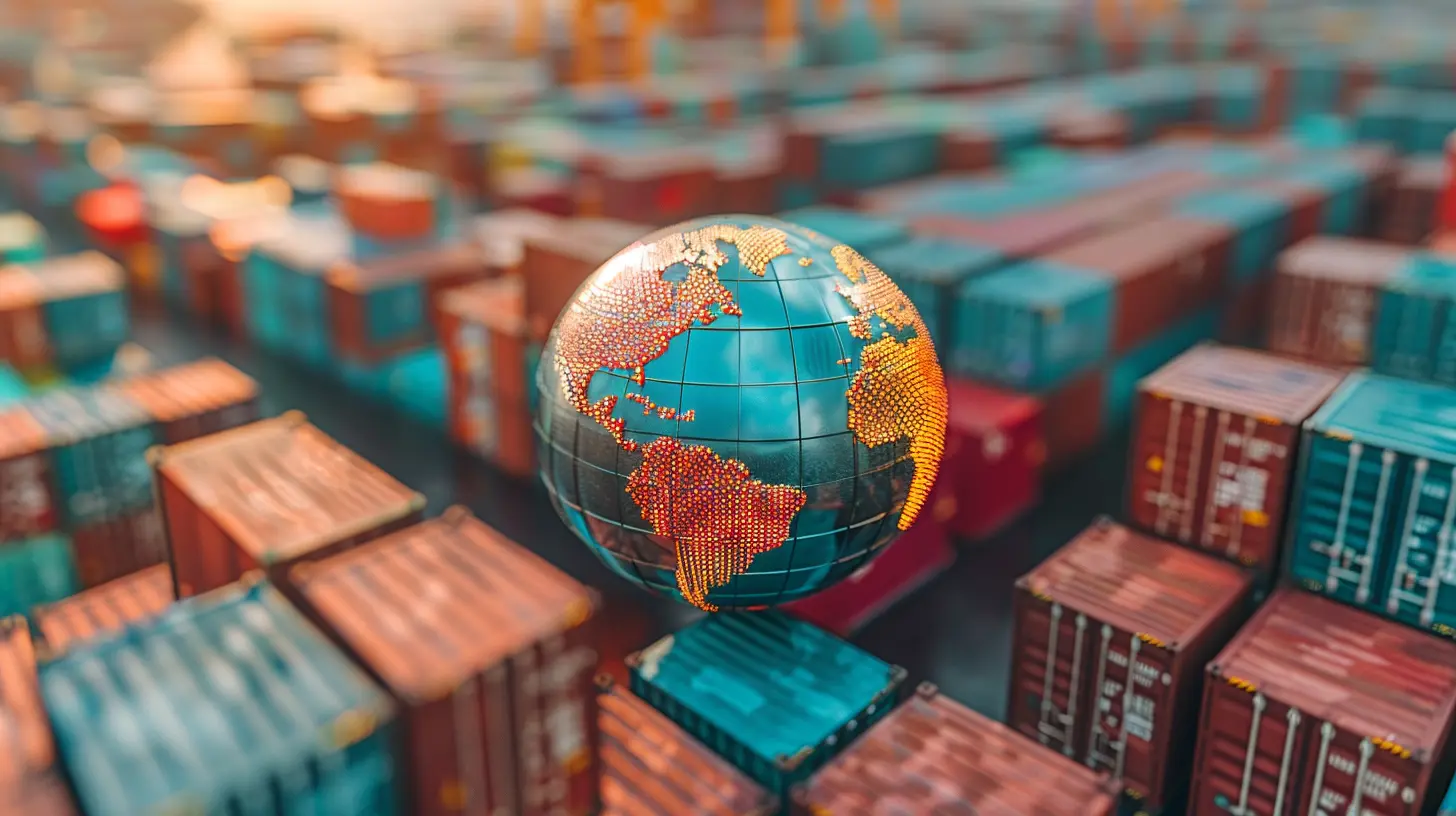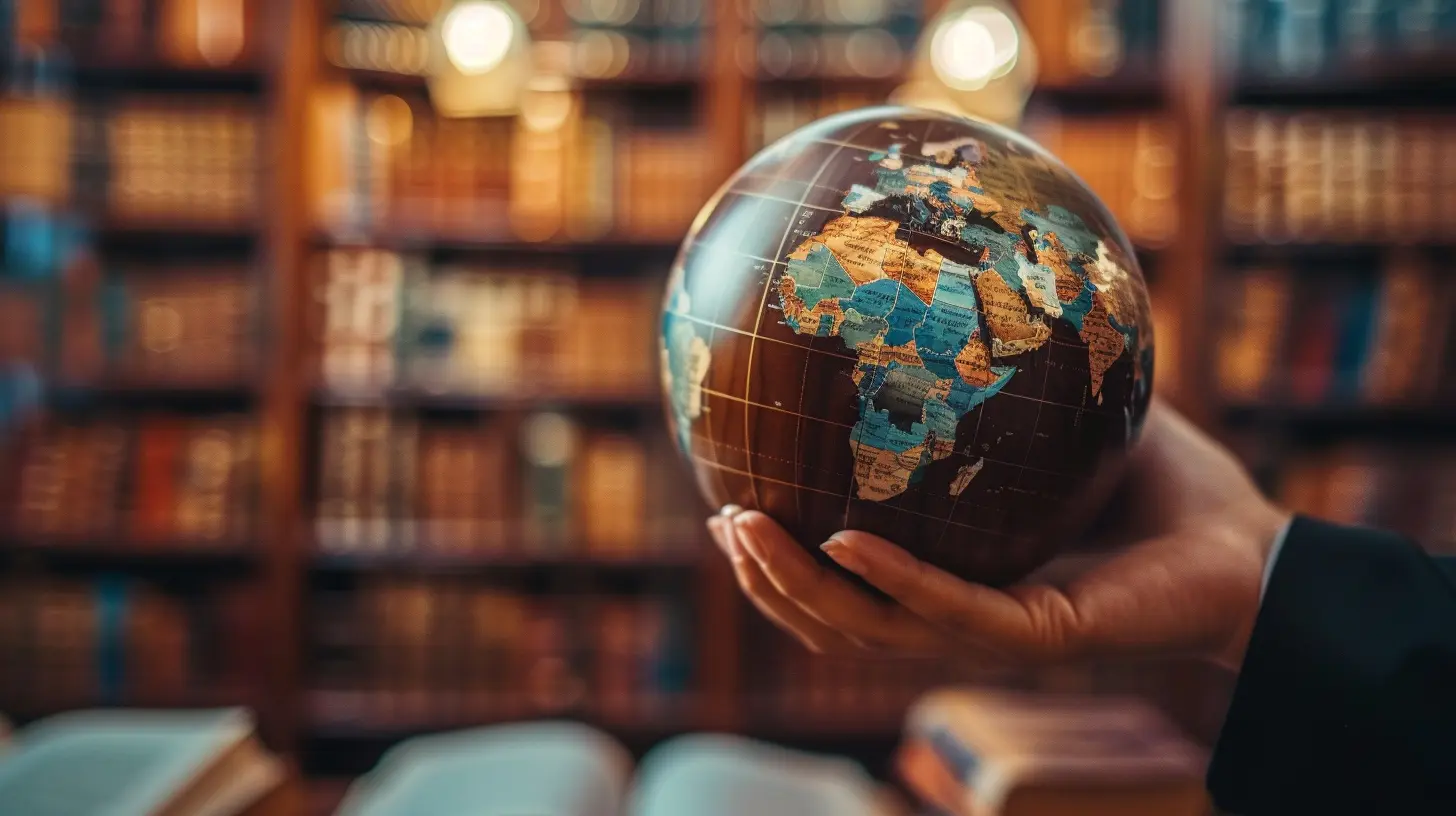How Intellectual Property Laws Impact Global Trade
4 October 2025
Ever wondered why your favorite international brand isn't available in every corner of the world? Or why a company can’t just copy a hit product and sell it cheaper? That’s where Intellectual Property (IP) laws come marching in. These rules and regulations might sound like boring legal stuff, but they actually drive a huge chunk of global business decisions. In fact, they’re the unsung heroes (or villains, depending on how you look at it) in the story of global trade.
In this article, we’ll break down how intellectual property laws play a pivotal role in shaping international commerce. Whether you're an entrepreneur eyeing global expansion, a curious business student, or just someone who wants to understand why innovation is treated like royalty across borders — you're in the right place.
What Is Intellectual Property, Anyway?
Let’s start with the basics. Intellectual Property refers to creations of the mind — think inventions, brand names, literary works, artistic designs, software codes, and even fancy logos. There are several types of IP, but the biggies are:- Patents (for inventions)
- Trademarks (for brand names and logos)
- Copyrights (for artistic and literary works)
- Trade secrets (for confidential business info)
All of these give the creator exclusive rights to use, sell, or license their work, usually for a set period.
Imagine spending years creating a revolutionary smartphone design, only to have someone else copy it and sell it for less. That’s why IP laws matter—they protect your hustle.
How IP Laws Influence International Trade
So, what happens when this IP-protected content crosses borders? Things get a bit more complicated, and here’s where global trade comes into play. Let’s dive into how IP laws shape international commerce.1. 🚧 Barrier or Bridge? IP Laws as Trade Gatekeepers
Intellectual property rights (IPRs) can act both as barriers and bridges in global trade. On one hand, enforcing IP laws builds trust and encourages companies to expand internationally. On the other hand, overly strict or inconsistent IP laws across countries can act as roadblocks.A company in the U.S. might hesitate to export their tech product to a country where IP violations are common. Why risk losing their competitive edge to copycats?
But flip the coin, and if a country has strong IP enforcement, it becomes an attractive market for foreign investors and traders. It’s like sending your kid to a school where you know the teachers actually care—that's IP protection for businesses.
2. 🌍 The TRIPS Agreement: Leveling the Global Playing Field
Enter the TRIPS Agreement (Trade-Related Aspects of Intellectual Property Rights). It's one of the most significant IP-related treaties under the World Trade Organization (WTO). Signed in 1994, TRIPS sets minimum standards for IP protection that all member countries must follow.Think of it as a universal rulebook, ensuring that countries can't just play by their own IP rules while participating in global trade.
Now, that doesn’t mean all countries have the same level of enforcement. A patent might last 20 years in the U.S., but the processes and loopholes vary widely across developing and developed nations. Still, TRIPS aims to reduce those inconsistencies, making trade smoother.
3. 💼 IP as a Trade Asset
Here’s a fun thought: intellectual property is currency in the global trade marketplace.Licensing agreements allow a U.S.-based company to let a Chinese manufacturer produce its product. That’s the IP at work right there. Software firms, fashion brands, and car manufacturers use IP licenses to expand globally without physically setting up shop in every country.
Why ship products when you can ship the rights to make them?
But there’s a twist—some countries may take these licenses and stretch the rules. Counterfeit goods? Yep, that's when IP breaks down. And it creates serious friction in international trade relationships.
4. ⚖️ The Impact on Developing Countries
This is where things get a bit controversial.Developed countries, with their strong tech and creative industries, often push for tougher global IP laws. Developing countries, on the other hand, argue that strict IP enforcement can stifle their economic growth and access to innovation.
Take pharmaceuticals. If a lifesaving drug is patented and priced sky-high due to IP protection, poorer countries may struggle to afford it. This has led to heated debates about compulsory licensing, where governments allow the production of a patented product without the patent owner's consent—in the name of public health.
In short, IP laws can either empower or inhibit developing nations, depending on how they're applied.
5. 🧠 Innovation and IP: Feeding the Global Economy
Here's a simple equation: More IP protection = More Innovation = More Trade.When businesses feel their ideas are protected, they invest more in research and product development. That leads to better products, new markets, and increased exports. Countries like Japan, Germany, and South Korea didn't become tech giants by accident—they heavily invest in IP innovation.
The global trade market thrives on new gadgets, smart software, life-saving drugs, and even luxury brands. All of these rely on solid IP laws to stay competitive and profitable. Without that legal safety net, the risk of copying increases, and the incentive to innovate plummets.
6. 🏭 The Role of IP in Manufacturing and Supply Chains
In today's interconnected world, parts for a single product might come from five different countries. A smartphone, for example, may have components from Korea, China, Germany, and the U.S. The software might be coded in India. The brand could be headquartered in California.So how do companies keep control? Through IP rights.
Well-negotiated IP agreements are essential to global supply chains. They dictate who can use what, how, and where. They help prevent unauthorized factories from producing "extra" units for the black market.
Imagine if every player on a soccer team could just shoot the ball into the crowd. Chaos, right? IP laws make sure everyone plays by the rules.
7. 📈 How IP Drives Economic Growth
Let’s look at the numbers for a second. The World Intellectual Property Organization (WIPO) reports that IP-intensive industries contribute significantly to GDP and job creation, especially in developed countries.In the U.S., IP-intensive industries account for over 40% of the economy and support tens of millions of jobs. And it’s not just tech. Fashion, music, movies, healthcare—the list goes on.
This economic clout means IP laws aren't just nice-to-haves. They’re must-haves for a thriving international trade ecosystem. Countries that prioritize IP protection get ahead, plain and simple.
Real-World Examples: When IP Meets Trade
Let’s take this beyond theory and into some real-life drama. Here are a few famous cases where IP laws tangled directly with global trade:- Apple vs. Samsung: These tech giants have battled in court over design patents for years, affecting product launches and market strategies worldwide.
- Pharma wars in India: Global pharma companies have had trouble enforcing patents for medications in India. The Indian government has granted compulsory licenses for generic versions, prioritizing public health over patents.
- China’s IP reputation: For decades, the U.S. and EU have accused China of IP theft, leading to tariffs, sanctions, and political tension. Efforts are ongoing to improve enforcement, but skepticism remains.
Each of these cases highlights the power IP laws hold over global markets.
The Future of IP in Global Trade
As new technologies emerge—AI, blockchain, biotech—the landscape of intellectual property is growing more complex.Will we see a unified global IP system? Probably not anytime soon. But the pressure is on. Countries will need to balance strong IP laws with access to innovation. Businesses will have to navigate a web of international laws to protect their assets.
And you? Well, if you’re in business, understanding IP might just be your secret weapon in going global.
Conclusion: Why Should You Care?
If you're a business owner, innovator, or simply someone who shops online, global IP laws affect you. They decide what's available, at what price, and who gets to sell it. They shape competition, drive innovation, and define how industries grow across borders.So the next time you buy a product manufactured halfway across the globe, just remember—behind that simple transaction, there’s a world of intellectual property laws keeping the wheels of global trade spinning.
all images in this post were generated using AI tools
Category:
Economic TrendsAuthor:

Rosa Gilbert
Discussion
rate this article
1 comments
Zyana Fletcher
Intellectual property laws are crucial for protecting innovation and fostering global trade.
October 5, 2025 at 4:08 AM

Rosa Gilbert
Thank you for your insight! Indeed, strong intellectual property laws play a vital role in encouraging innovation and facilitating global trade by ensuring creators are rewarded for their ideas.


